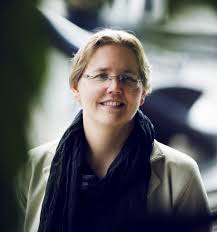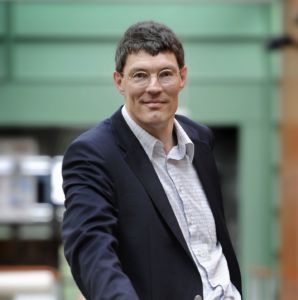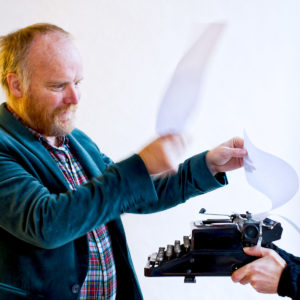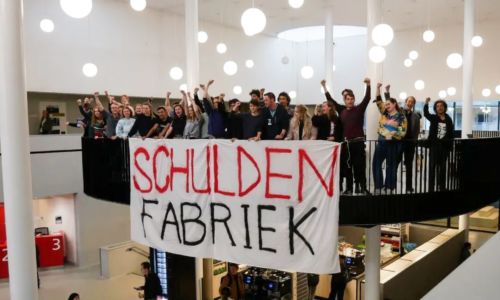When it comes to these scientists, resentment over ‘black hole millions’ is hard to find
-
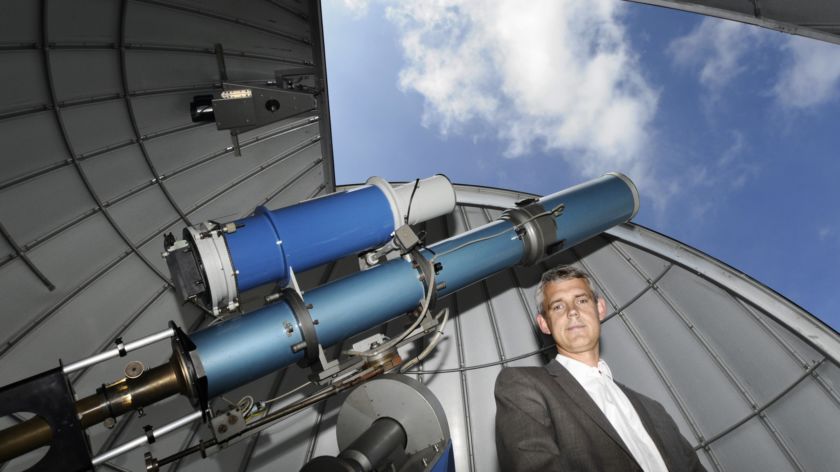 Heino Falcke. Foto: Bert Beelen
Heino Falcke. Foto: Bert Beelen
Heino Falcke and his team received a grant worth a cool twelve million euros from Radboud University for their research on black holes. This investment will ultimately benefit the entire university, according to the astronomer himself as well as the executive board. What do Falcke’s colleagues think of the matter?
Lotte Jensen, Professor of Dutch Literary and Cultural History:
‘I think it is money well spent, and I heartily congratulate Heino Falcke and his team. He has performed ground-breaking research in this field before, so I think it is very good for science as a whole, as well as the continuity of ongoing research. I assume that the executive board made a considered decision and I trust that they will also make lasting and sustainable investments in Radboud Erfgoed, the faculty of Arts, and our wonderful language programmes.’
‘I would like to offer one small point of criticism. Heino Falcke would have done well to leave out the the sentence: “By the way, we have also submitted proposals with humanities researchers.” Just let him do his fundamental research into black holes without involving such an artificial opportunist argument. Now he’s acting like he would love to give humanities researchers a tiny slice of the pie. There is no need for this kind of forced interdisciplinarity. After all, when humanities scholars manage to secure a large grant, they’re not going to shout: “By the way, we will also be writing research proposals with physicists.”
Klaas Landsman, Professor in Mathematical Physics:
I think this subsidy is absolutely right and completely deserved. Heino is not just one of the more famous people from Radboud University, but also the global field of astronomy; he is one of the two scientists who were mainly responsible for the famous photo of a black hole from 2019. He almost won the 2020 Nobel prize.’
‘His work attests to an incredibly deep perspective on what else we can observe, and particularly those interesting observations that require herculean effort. Technologically speaking, that picture from 2019 is one of humanity’s greatest achievements, almost comparable to the moon landing.’
And finally, with the Event Horizon Telescope he has put pure science on the map, especially in a faculty that’s under more and more pressure to perform research with direct applications. In reality, we owe a huge part of our everyday technology, from electricity to the World Wide Web to WiFi, to unexpected long-term spin-offs of the kind of fundamental science that Heino practices. I expect that this will also be true for currently pressing issues.’
Marc van Oostendorp, Professor of Dutch and Academic Communication:
‘Of course I wonder at all the things we humanities scholars could do with twelve million euros. Our area of expertise is under pressure, and this kind of money would be a huge boon to the Faculty of Arts.’
‘That makes it tempting to bicker about this financial injection for the astronomers, but I don’t think that’s wise. It’s better for us scientists to all band together against the underfunding of science. The Minister of Education herself has indicated that the field of higher education needs at least a billion euros more.’
‘In my opinion the issue is not that the executive board decided to reserve twelve million euros for black hole research, but rather that it was necessary for the board to make that decision in the first place. Because let’s be honest: twelve million euros is not that much money, all things considered. More money is spent on all kinds of ridiculous things – in that case I would rather see it invested in this research.’
‘Black holes are very appealing, and Heino Falcke is a prominent figure. The thing I find beautiful about his research is that it serves a single purpose: to better understand the world all around us. As a fellow scientist I heartily support that endeavour. However, now that he will receive this grant, I would like to make the following appeal to Falcke: let us all fight to make sure the government comes through with more money for the sciences.’
Mike Jetten, Professor of Ecological Microbiology:
‘Heino Falcke deserves every bit of support for his research. It’s absolutely ridiculous that the university has to pay for this by itself, and that there is not enough money coming from the European Union or the Netherlands to fund his research.’
‘I assume that the executive board was properly advised whether or not this was a wise investment. In matters such as this, the question is always: what will- and what won’t you spend money on? Personally, I think it’s good that the university made a strategic choice and gave the EHT-team the needed support. That is something that Radboud University can use to distinguish itself both now and in the future.’
‘But at the same time, you don’t want this investment at the expense of others. For example, there is a lot still to do at this university in terms of workload. Shouldn’t the money have been spent on that? I doubt it. If they had divided those twelve million over all the faculties, no one would have been helped much. Even in that case, choices would have to be made.’
